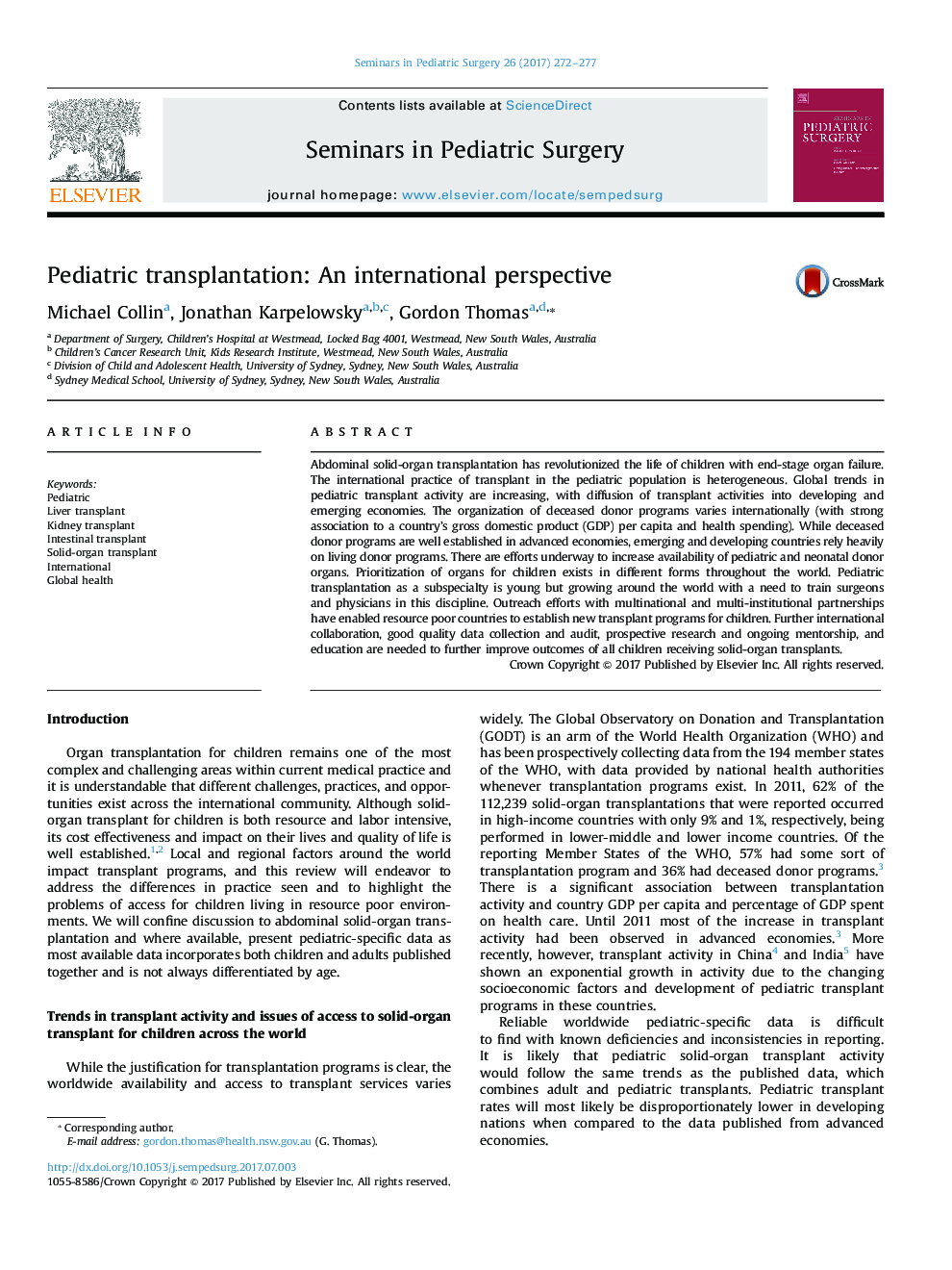| Article ID | Journal | Published Year | Pages | File Type |
|---|---|---|---|---|
| 5720291 | Seminars in Pediatric Surgery | 2017 | 6 Pages |
Abdominal solid-organ transplantation has revolutionized the life of children with end-stage organ failure. The international practice of transplant in the pediatric population is heterogeneous. Global trends in pediatric transplant activity are increasing, with diffusion of transplant activities into developing and emerging economies. The organization of deceased donor programs varies internationally (with strong association to a country's gross domestic product (GDP) per capita and health spending). While deceased donor programs are well established in advanced economies, emerging and developing countries rely heavily on living donor programs. There are efforts underway to increase availability of pediatric and neonatal donor organs. Prioritization of organs for children exists in different forms throughout the world. Pediatric transplantation as a subspecialty is young but growing around the world with a need to train surgeons and physicians in this discipline. Outreach efforts with multinational and multi-institutional partnerships have enabled resource poor countries to establish new transplant programs for children. Further international collaboration, good quality data collection and audit, prospective research and ongoing mentorship, and education are needed to further improve outcomes of all children receiving solid-organ transplants.
